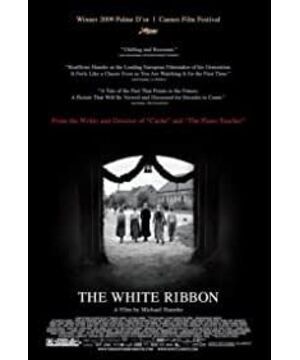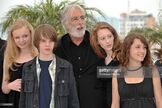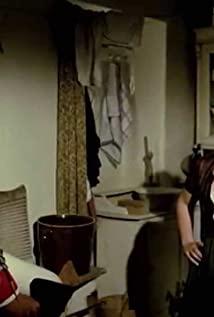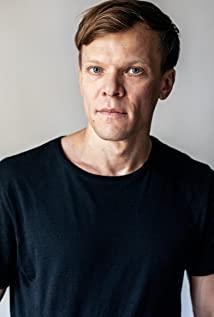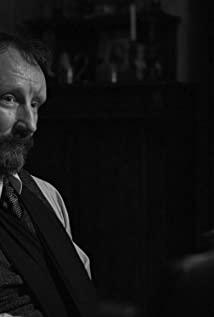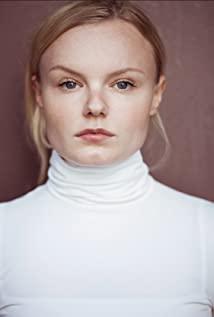I mean, their culture was once so repressive, so dark, and so suffocating. They, the Germans, are the legendary West with a free tradition. This movie is simply "Raise the Red Lantern", "Peacock", and "Green Red". The important thing is not the plot, but the atmosphere, but the impossibility of happiness in an infinitely deep dark well.
Can you imagine such a world? A newborn baby is extremely delicate and pure, but from the first day of his birth, you know that it is impossible for him to be happy in this life, and the world he descended into is impossible to give him happiness, in fact it descended The world is the enemy of happiness. Such an enemy of happiness, it holds a fly swatter, looking around for happiness, and once it finds it, it beats them to death.
In "White Ribbon", the pastor is the one who holds the fly swatter in his hand: his children were playing outside and they were too late to go home, and had a violent beating; his son Martin masturbation was discovered by him, and he had to tie his hands to sleep from then on On the bed frame; the children were screaming during the break between classes, and he was scolded by him... Out of love for the children and for God, he carefully nurtured a sense of guilt in the inner world of the children Beast, so that one day, Martin ventured across a high-altitude log bridge. When asked why he wanted to do this, he said: "I want to give God a chance to kill me."
Really, who is happy in this German village in 1913? The farmer's family lived on the poverty line. After being dismissed by the manor owner, he hung to death; the housekeeper lived tremblingly under the protection of the manor owner, and could beat his own son for the loss of his son's whistle; the midwife tried to win the doctor's favor Become a cow and a horse, but the doctor said to her: You make me sick; the children live in the arbitrary beating and scolding of adults and become secret "terrorists" in the village. The important thing is not pain, but the inevitability of pain. Everyone is suffering, and then pass their own pain in the pipeline. The power relations in the village are so intertwined and seamless, almost like a technological product, almost like art.
The point is that the oppressor does not live better than the oppressed. The owner of the manor repeatedly encountered "class revenge" actions: children were beaten, houses burned; doctors who insulted his wife, lover, and daughter were framed and injured; the pastor's "love" for his children did not exchange gratitude, on the contrary, his pet bird She was stabbed to death with scissors by her own daughter. As the defenders of order, the "authorities" in these villages must lubricate the power machine to prevent it from rusting, stand guard to prevent it from being stolen, and pay it rent to prevent it from being taken away... Their pain and theirs The suffering of the oppressed person is geometrically symmetrical.
What is frightening is that looking at human history, the history of being the enemy of happiness is almost all of our history. Whether it’s in the East or the West, most of the time "ancestors and ancestors" tell their children: no fun, no masturbation, no loud noises, no thoughts, no talk...the same world, the same nightmare. That is to say, there are so many, so many delicate and pure babies in history. They came to the world one after another, and passed through the assembly line of the power machine one after another. What went in was life, and what came out was...they. Never came out again.
Apart from freedom, I can't think of any path to happiness.
Although there are cultural relativists, postmodernists, and lovers of traditional civilization... I hate modernization deeply. I think I am willing to do a "modernization" that is not so cool, not so politically correct, and firm like Fukuyama. Supporter, because I yearn for a happy world, and apart from freedom, I can't think of any way to happiness.
Director Heneke said in an interview that he wanted to show "the consequences of all forms of terrorism" through this film. I think what he meant is that the essence of all power relations is "terrorism": economic personal dependency, religious dogmatism, gender oppression... and the consequences of these "terrorism" are in that village It is the "conspiracy and sabotage" activities of those children: when a person is deprived of the right to pursue happiness, the suffering of others becomes his happiness.
But even in such a village, there is still love and poetry. The film has one of the most memorable scenes: the pastor’s young son nervously took out a wounded bird from his arms and asked his father if he could adopt it. After his father agreed, in this almost no smile film. Inside, his eyes lit up and he showed a surprise smile. Even in such a cold world, it cannot eliminate the bacteria of love. I think human beings are so bad at happiness, it is simply not worth saving, but the desire to love and be loved also gives this species a bottom line for its clumsiness.
View more about The White Ribbon reviews


